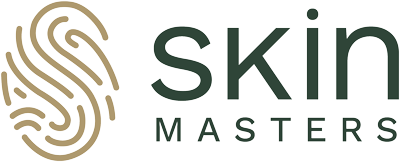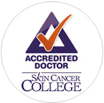Resources
Home / Resources
Australia is a world leading hub of expertise in melanoma and skin cancer research and treatments with many leading research projects attracting worldwide attention. We are able to tap into this expertise as and when we need to support our patients.
We all have a part to play together in this endeavour with public awareness and self examination, safe sun practices and clinician expertise to screen and treat cases.
Australia has the highest melanoma rates in the world, with one person dying from the disease every 6 hours. It is also the most common cause of death impacting 20-39-year-old Australians.
The State of the Nation report estimates that without critical action being taken now, by 2030:
- 205,000 Australians will be diagnosed with melanoma
- a further 16,000 Australians will die from the disease
- The economic cost to the nation will be $8.7 billion.
INFORMATION
Common Skin Cancers
Melanoma
Melanoma is the 3rd most commonly diagnosed cancer, with 1 in 14 men and 1 in 24 women having a melanoma in their lifetime, or approximately 14,000 new melanomas every year. With incidence at around 2% of all skin cancers, melanoma is nevertheless responsible for 75% of all skin cancer deaths. For those aged under 40 years, melanoma is the most common and most lethal form of solid cancer. Some melanomas grow very slowly, whilst some can grow very quickly and can kill within a matter of months. It’s important to seek an expert opinion on any skin lesion which is elevated, firm and growing- EFG. The appearance of melanoma may be very subtle and requires expertise to diagnose with confidence.
Basal cell cancer
Basal Cell Carcinomas (BCCs) are the most common skin cancers, accounting for about two thirds of non-melanoma cases. They are generally slow growing and only very rarely are they fatal. Nevertheless they are destructive, disfiguring and can be both painful and a portal for infection. BCCs can appear in areas with high sun exposure ie: the face, neck, shoulders and back. Symptoms of a Basal Cell Carcinoma include a slow growing pearly skin lump or a scaly dry area that is shiny and pale (sometimes scar-like) or bright pink in colour. They may bleed spontaneously or from minimal trauma
Squamous cell carcinoma
Squamous Cell Carcinomas (SCCs) are the second most common type of skin cancer, accounting for around one third of non-melanoma skin cancers and approximately 350 deaths in Australia annually. It begins in the upper layer of the skin, called the epidermis, and usually appears on areas with the most sun exposure, such as the face, neck, hands, forearms and lower legs. SCCs generally grow quickly over weeks to months. Whilst they are less likely to spread around the body than melanoma, when they do, they can be just as lethal.
Solar Keratosis
Sometimes referred to as sunspots, solar keratoses or actinic keratoses, are the most common skin conditions caused by U.V. damage. They are rough, scaly, firm and usually multiple, on sun-exposed areas of the body such as the face, neck, forearms, hands and lower legs. They can be viewed as precancerous lesions, with a small percentage going on to become invasive Squamous Cell Carcinomas. Therefore it is best to identify and treat early to prevent complications. Furthermore As such they are best treated early.
Other skin cancers
There are many other much rare skin cancers such as Merkle cell carcinoma , atypical Fibroxanthoma , Microadenexal carcinoma or even variants of well known such as desmoplastic melanoma to name only a few. Our clinicians pool of experience means that we are familiar with even the rarest skin cancers that a GP is unlikely to see in a lifetime of working.
Useful Links
Melanoma Institute Australia
Skin Cancer Institute
https://www.skincancerinstitute.com
Skin Cancer College
When Was Your Last Skin Cancer Check?


